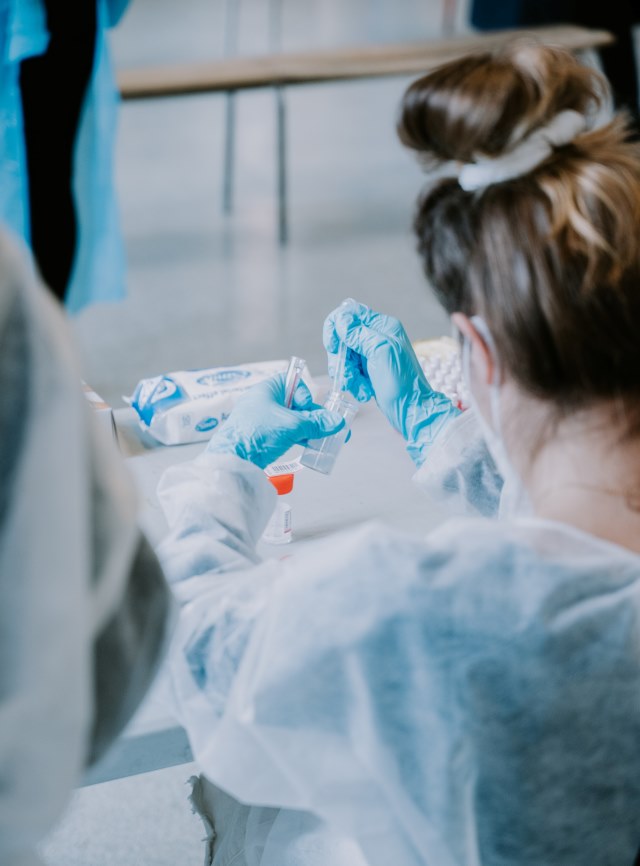A question that often looms large for nursing students and those considering this challenging yet rewarding career path is: “What is the hardest course in nursing school?”
Nursing school is known for its rigorous curriculum and high academic standards, and students often find themselves facing various courses that test their knowledge and resilience. However, identifying the toughest course can be subjective, as it depends on individual strengths, interests, and learning styles.
In the following sections, we’ll explore the courses that are frequently considered the most challenging in nursing school. We’ll delve into the reasons behind their reputation, the skills they demand, and strategies for success.
Whether you’re a nursing student curious about the road ahead or someone intrigued by the academic rigors of nursing, this article will provide valuable insights into the demanding coursework that shapes the next generation of healthcare professionals. So, let’s unravel the complexities of nursing education and discover what makes certain courses stand out as the most formidable challenges on the journey to becoming a nurse.
Nursing Education: Decoding Challenges
Navigating the educational landscape of nursing school presents unique challenges, with students often grappling with the question of which courses pose the greatest difficulty. This exploration into the challenges inherent in nursing education will delve into the complexities of coursework, shedding light on the courses that are often considered the most challenging.

From intensive anatomy and physiology classes to rigorous pharmacology courses, nursing students face a curriculum that demands a deep understanding of complex medical concepts. This examination will explore the difficulties encountered in these challenging courses, addressing the specific knowledge and skills required to overcome educational hurdles.
For those embarking on their nursing education journey, acknowledging and understanding the difficulties associated with certain courses is crucial. By gaining insights into the challenges of demanding coursework, nursing students can better prepare themselves to navigate the educational complexities and emerge as competent and resilient healthcare professionals.
Anatomy and Physiology
A Deep Dive into the Human Body
Embarking on the study of anatomy and physiology in nursing school is a profound exploration into the intricacies of the human body. This deep dive into the complexities of anatomical and physiological knowledge will illuminate the challenges and rewards that students encounter in this foundational course.
From comprehending the intricacies of organ systems to understanding the interplay of physiological processes, nursing students engage in a comprehensive examination of the human body. This exploration will delve into the depth of content covered in anatomy and physiology courses, emphasizing the critical role this knowledge plays in building a solid foundation for nursing practice.
For those undertaking the study of anatomy and physiology, acknowledging the depth of the subject matter is essential. As students navigate the complexities of the human body, they gain a profound understanding that serves as the cornerstone of their nursing education, laying the groundwork for future clinical competence and patient care.
Pharmacology
The Complex World of Medications
Pharmacology is another formidable course in nursing school, delving into the intricate realm of medications and their effects on the human body. In this article, we’ll dissect the challenges of pharmacology, exploring the reasons behind its reputation as a tough subject.

Whether you’re currently grappling with pharmacology in nursing school or are interested in gaining insight into the crucial knowledge nurses need to ensure safe and effective medication management, this article will serve as a valuable guide. Join us as we navigate the intricate world of medications and pharmacology in the nursing profession.
Medical-Surgical Nursing
Bridging Theory with Clinical Practice
Delving into the study of pharmacology in nursing school is a journey through the intricate world of medications. This exploration into the complexities of pharmacological knowledge will unveil the challenges and insights that students encounter in this essential course.

From understanding drug interactions to grasping the pharmacokinetics and pharmacodynamics of various substances, nursing students embark on a comprehensive examination of medications. This exploration will delve into the depth of content covered in pharmacology courses, emphasizing the critical role this knowledge plays in shaping safe and effective nursing practice.
For those undertaking the study of pharmacology, recognizing the intricacies of the subject matter is crucial. As students navigate the complexities of medications, they gain a profound understanding that becomes fundamental to their nursing education, equipping them with the skills needed for accurate medication administration and patient safety.
Pathophysiology
Understanding Disease Processes
In the realm of nursing education, delving into the study of pathophysiology is a journey into the intricate understanding of disease processes. This exploration into the complexities of pathophysiological knowledge unveils the challenges and revelations that students encounter in this foundational course.
From deciphering the mechanisms underlying diseases to comprehending how physiological disruptions manifest as illnesses, nursing students engage in a comprehensive examination of pathophysiology. This exploration delves into the depth of content covered in pathophysiology courses, emphasizing the critical role this knowledge plays in building a solid foundation for understanding patient conditions and providing effective nursing care.
For those immersing themselves in the study of pathophysiology, recognizing the intricacies of the subject matter is essential. As students navigate the complexities of disease processes, they gain a profound understanding that becomes integral to their nursing education, equipping them with the knowledge needed to assess, treat, and care for individuals affected by various health conditions.
Nursing Research
Navigating the World of Evidence-Based Practice
Nursing research is a vital component of evidence-based practice, offering valuable insights into improving patient care. However, it can be a challenging course due to its focus on research methodologies and data analysis.

For those immersing themselves in the study of nursing research, recognizing the intricacies of the subject matter is essential. As students navigate the complexities of evidence-based practice, they gain a profound understanding that becomes integral to their nursing education, equipping them with the skills needed to contribute to the evolving landscape of healthcare through informed and evidence-driven care.
Maternal and Child Health
The Complexity of Birth and Beyond
Exploring maternal and child health involves navigating the intricate journey from birth onward. This expedition unveils the challenges and nuances that nursing students encounter in this specialized area of study.
From understanding the complexities of prenatal care to providing postpartum support, nursing students engage in a comprehensive examination of maternal and child health. This exploration delves into the depth of content covered in maternal and child health courses, emphasizing the crucial role this knowledge plays in fostering optimal healthcare outcomes for both mothers and their children.
For those immersing themselves in the study of maternal and child health, recognizing the intricacies of the subject matter is essential. As students navigate the complexities of caring for mothers and children, they gain a profound understanding that becomes integral to their nursing education, equipping them with the skills needed to contribute to the well-being of families in diverse healthcare settings.
Mental Health Nursing
Delving into the Mind and Emotions
Mental health nursing is a course that delves into the complexities of understanding and caring for individuals dealing with mental health issues. It is often regarded as a challenging subject due to the intricacies of assessing and supporting individuals’ emotional and psychological well-being.

From understanding the complexities of mental health disorders to providing compassionate care, nursing students engage in a comprehensive examination of mental health nursing. This exploration delves into the depth of content covered in mental health nursing courses, emphasizing the crucial role this knowledge plays in fostering understanding, empathy, and effective care for individuals facing mental health challenges.
Recognizing the intricacies of the subject matter is essential. As students navigate the complexities of caring for individuals with mental health disorders, they gain a profound understanding that becomes integral to their nursing education, equipping them with the skills needed to contribute to the well-being of those facing mental health concerns.
Complex Care
Tackling Multi-Faceted Patient Scenarios
Addressing complex care involves navigating the intricacies of multi-faceted patient scenarios. This undertaking unveils the challenges and intricacies that nursing students encounter in this specialized and dynamic aspect of their education.
From managing intricate medical conditions to coordinating comprehensive care plans, nursing students engage in a comprehensive examination of complex care. This exploration delves into the depth of content covered in complex care courses, emphasizing the crucial role this knowledge plays in fostering critical thinking, adaptability, and effective care for patients with diverse and intricate healthcare needs.
As students navigate the complexities of addressing multi-faceted patient scenarios, they gain a profound understanding that becomes integral to their nursing education, equipping them with the skills needed to provide holistic and tailored care across a spectrum of healthcare situations.
The Culmination
Capstone and Clinical Experiences
In the final stages of nursing education, the culmination involves the integration of capstone and clinical experiences. This pivotal juncture unveils the challenges and rewards that nursing students encounter as they bring together theoretical knowledge and practical skills in a real-world healthcare setting.
From applying learned concepts in clinical practice to executing capstone projects that showcase comprehensive understanding, nursing students engage in a comprehensive examination of their education. This exploration delves into the depth of content covered in capstone and clinical experiences, emphasizing the critical role these components play in preparing students for the transition to professional nursing practice.
For those approaching the culmination of their nursing education, recognizing the significance of integrating capstone and clinical experiences is essential. As students navigate the challenges and rewards of this final stage, they gain a profound understanding that becomes integral to their preparation for a successful and impactful career in nursing.
Overcoming Challenges in the Hardest Course
Nursing education comes with its share of demanding courses, each with its unique set of challenges. However, with dedication and effective strategies, these challenges can be conquered. In this article, we’ll provide insights into overcoming difficulties in the hardest courses of nursing school.

From grasping intricate concepts to mastering complex skills, nursing students engage in a comprehensive examination of the most challenging courses. This exploration delves into the depth of content covered in these demanding courses, emphasizing the critical role they play in honing critical thinking, problem-solving, and clinical abilities.
Personal Growth and Resilience
Nursing education isn’t just about acquiring clinical skills and knowledge; it’s also a journey of personal growth and resilience. Nursing students often face various challenges that test their mettle and adaptability.

From developing emotional resilience to cultivating adaptability in the face of adversity, nursing students engage in a comprehensive examination of their own growth. This exploration delves into the depth of experiences that contribute to personal development, emphasizing the critical role this journey plays in shaping well-rounded and resilient nursing professionals.
Is the Hardest Course Worth It?
For those mulling over the prospect of tackling the most rigorous course in nursing, I’d encourage a wholehearted embrace of the challenges that lie ahead. Navigating the intricacies of demanding coursework has unearthed a wellspring of personal growth and expertise within me, crafting not only my academic journey but also preparing me to thrive in the ever-shifting landscape of healthcare. The path is arduous, but the lessons gleaned are immeasurable, making the pursuit undoubtedly worthwhile from a uniquely personal standpoint.
A Journey of Growth Amidst Challenges

I encourage fellow nursing students to embrace the transformative process inherent in navigating challenges. The journey is demanding, yet the insights gained are priceless, serving as a testament to both personal and professional growth.
This odyssey of growth amidst challenges has not only shaped my academic journey but has also prepared me to embark on a fulfilling and impactful career in the dynamic field of nursing.
Frequently Asked Questions
Can I still succeed in nursing if I struggle with the hardest course?
Yes, struggling with the hardest course in nursing school doesn’t necessarily mean you cannot succeed in nursing. Many nursing students face challenges in specific courses, but with dedication, effective study strategies, and seeking help when needed, you can overcome these difficulties and still excel in your nursing education.
Is the hardest course an accurate representation of nursing as a whole?
The hardest course in nursing school may be challenging, but it doesn’t fully represent the entirety of nursing practice. Nursing is a multifaceted profession, and while certain courses are academically rigorous, the real-world application of nursing involves a broader set of skills and experiences. Nursing encompasses compassion, patient care, critical thinking, and teamwork, which extend beyond the challenges of any single course.
Are there resources available to help with the hardest course?
Yes, there are numerous resources available to help nursing students succeed in the hardest courses. These resources may include academic support centers, tutoring services, study groups, and online materials. Additionally, reaching out to professors, advisors, and fellow students for guidance and assistance can be valuable. Don’t hesitate to explore these resources to navigate the challenges of difficult courses effectively.
